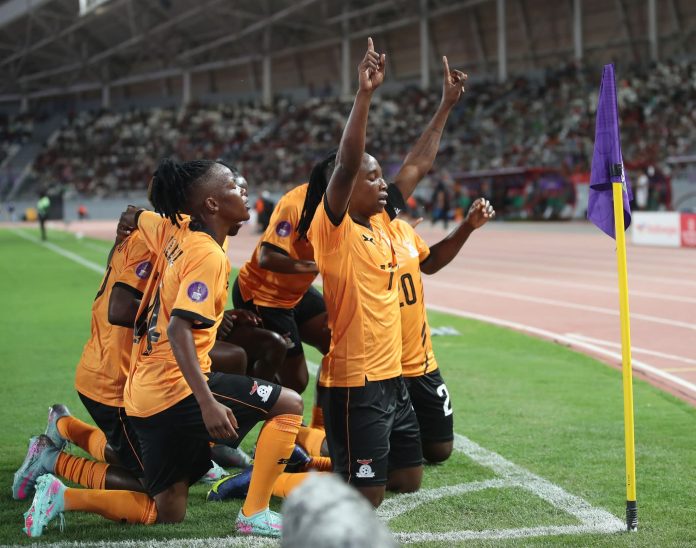By Martin Chanda Lesa
Personal Analysis
The opening match of the Women’s Africa Cup of Nations (WAFCON) was greatly anticipated and truly delivered on its expectations. As I watched the Copper Queens, there was great anxiety and fear among some fans that they might not deliver and would probably fall to Morocco, despite boasting some of the greatest talents in African women’s football.
This apprehension was due to the change in coaching staff, with Coach Nora taking charge, and the team’s recent average results in friendlies prior to WAFCON, given the Copper Queens’ pedigree.
The match finally came and ended 2-2 for Morocco and Zambia. Our girls looked more confident, played their hearts out, and were headed for a victory, but we conceded late – a draw that feels like a loss.
We simply needed to bury our chances, a lesson our players need to take in such competitive matches. Playing a determined Moroccan side on home soil, with their former Spain women’s national team World Cup-winning coach, was always going to be tough.
Positives
The first half showed great planning and strategy from Coach Nora. Even when some players, like Grace Chanda, didn’t play to their full potential, the system was strong in attack, and the midfield was fluid, fighting for every ball.
The defense, with new positioned players like Nachula at left back and the young Mapalo partnering Lushomo in central midfield, was quite solid. Thumbs up to Coach Nora – she exceeded expectations. Forget about the friendlies; she needed to try out all possible players and formations.
You can’t just inherit a team and continue on the same trajectory without some improvements or changes. Now is the right time for her to prove herself, and after this, we can judge her. Many thought we’d lose, but we almost won, save for that last-minute equalizer.
Negatives
The second half was a complete change from what we saw in the first half. The team went down in tempo, and quite understandably, some players started getting tired. Meanwhile, we were playing a home side that was down but playing at their highest energy levels to equalize.
North African teams play till the end of the whistle – a discipline we need to learn. By halftime, we should have had at least one change for Grace Chanda, who had struggled and probably had a poor day (though she’s a great player).
Perhaps Mercy Chipasula or Evarine Katongo would have suited the position. I always wonder why we’re not proactive and take the lead in game management through substitutions, unlike our opponents. Our substitutions should have been earlier and well-planned; we could have scored another goal.
The team went down, and Morocco was now more pressing, with about four, if not all five, changes, while we were holding on. It was a matter of time before they would equalize, as the pressure was now enough.
We could have absorbed it with more fresh legs, even for Ireen Lungu, who at some point easily gave away the ball to the opponents. Perhaps a defender like Pauline Zulu could have come in. Finally, we crumbled. The very team that shone in the first half failed in the second half. Why? Game management by the coach.
Make your substitutions in good time, as early as the second half, and re-energize your team, especially when your opponents are doing the same. No matter how good some players are, they tire out eventually in tense matches and can’t match opponents with more fresh legs. That’s why there’s a provision for substitutes.
Nora is okay; I hope she works on this aspect and considers a more flexible goalkeeper for the next matches. The dust has settled, and the pressure of the first match is done.
At least a point is still okay, and we have two more games to fight for. Morocco celebrated like they had won; they really survived this one. Come on, Copper Queens – you can do great things against Senegal and DRC; we are game!!!




